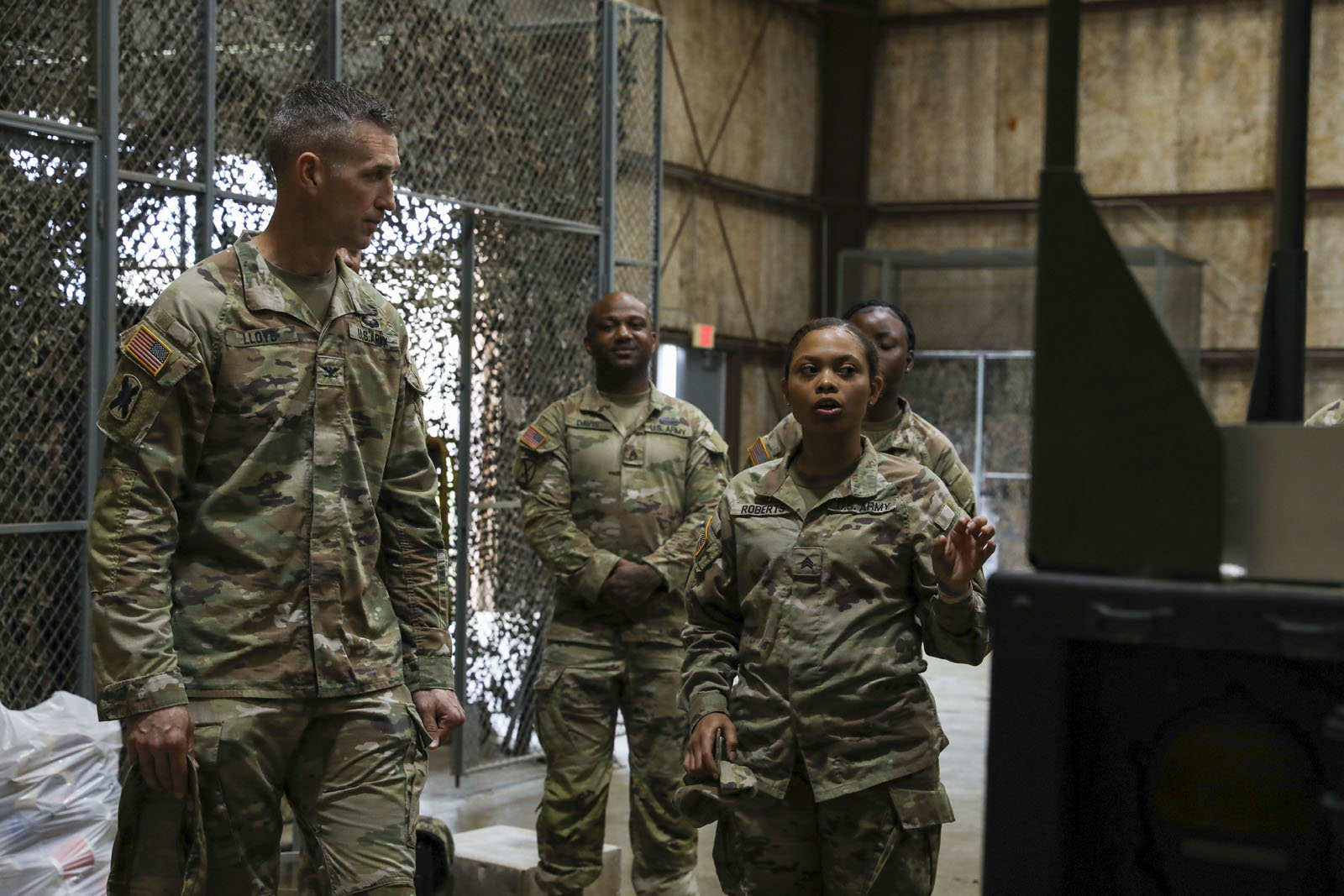By Staff Sgt. Noshoba Davis, Louisiana National Guard Public Affairs Office
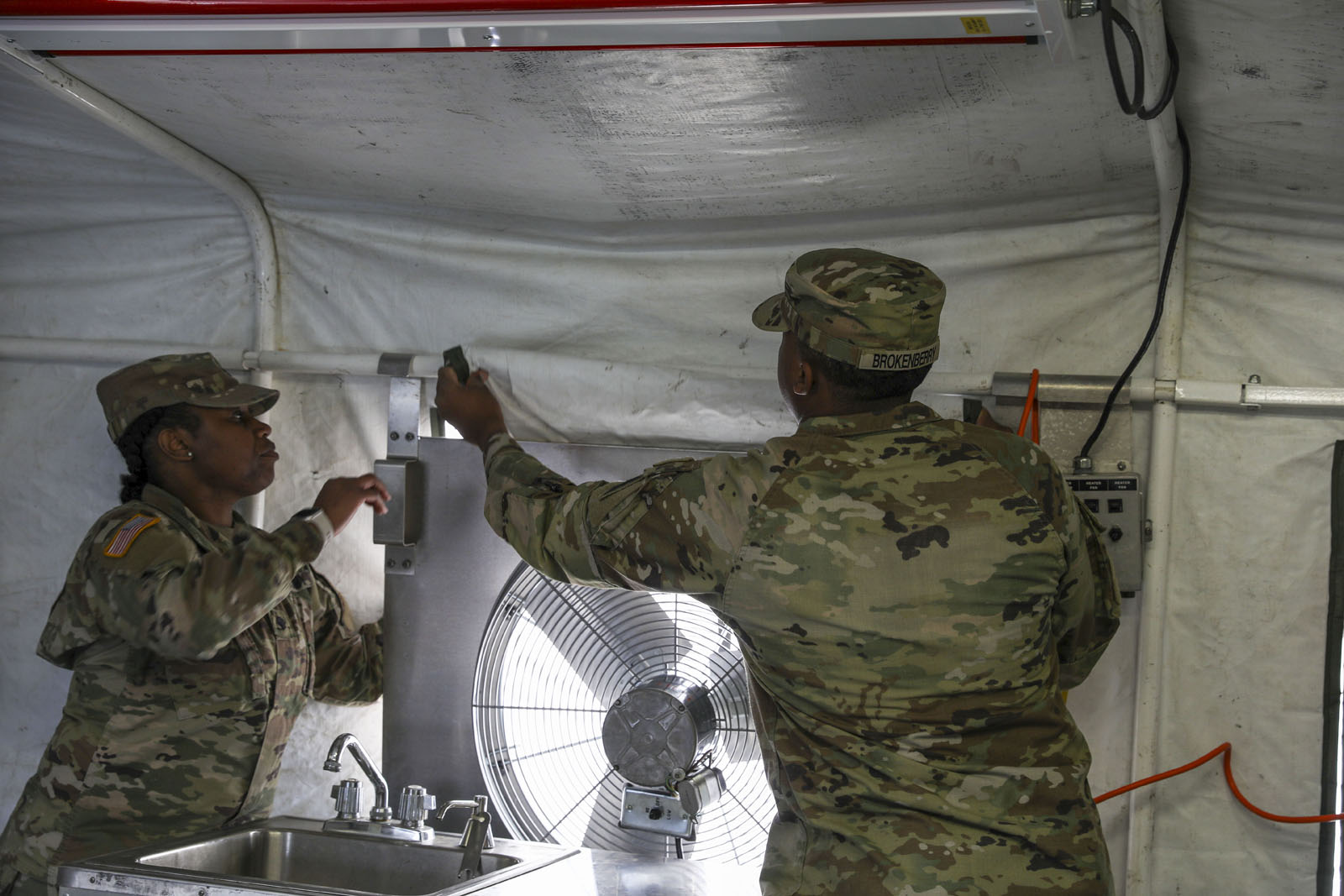 PINEVILLE, La. – Twelve culinary specialists from the Louisiana Army National Guard’s 256th Infantry Brigade Combat Team attended a specialized two-week training course that focused on their field feeding equipment at Louisiana National Guard Training Center Pineville, March 25 – April 5.
PINEVILLE, La. – Twelve culinary specialists from the Louisiana Army National Guard’s 256th Infantry Brigade Combat Team attended a specialized two-week training course that focused on their field feeding equipment at Louisiana National Guard Training Center Pineville, March 25 – April 5.
The specialized training is a first for the LANG’s culinary specialists and is pivotal in successful field feeding operations and equipment maintenance.
“This training is crucial for our culinary specialists as it not only enhances their operational capabilities, but also ensures the safety and efficiency of field feeding operations,” said Chief Warrant Officer 2 Thea Martin, 256th brigade food service advisor.
Mr. Bill Council and his team led the training. Each team member are civilian contractors that were hired by U.S. Army Tank-Automotive and Armaments Command to instruct, train and troubleshoot any issues with a unit’s field feeding equipment.
“Empowering Soldiers with the knowledge and skills to excel in their duties is our top priority,” said Council. “We emphasize safety, doing the preventive maintenance checks and services on each piece of equipment, correct procedures and teamwork.”
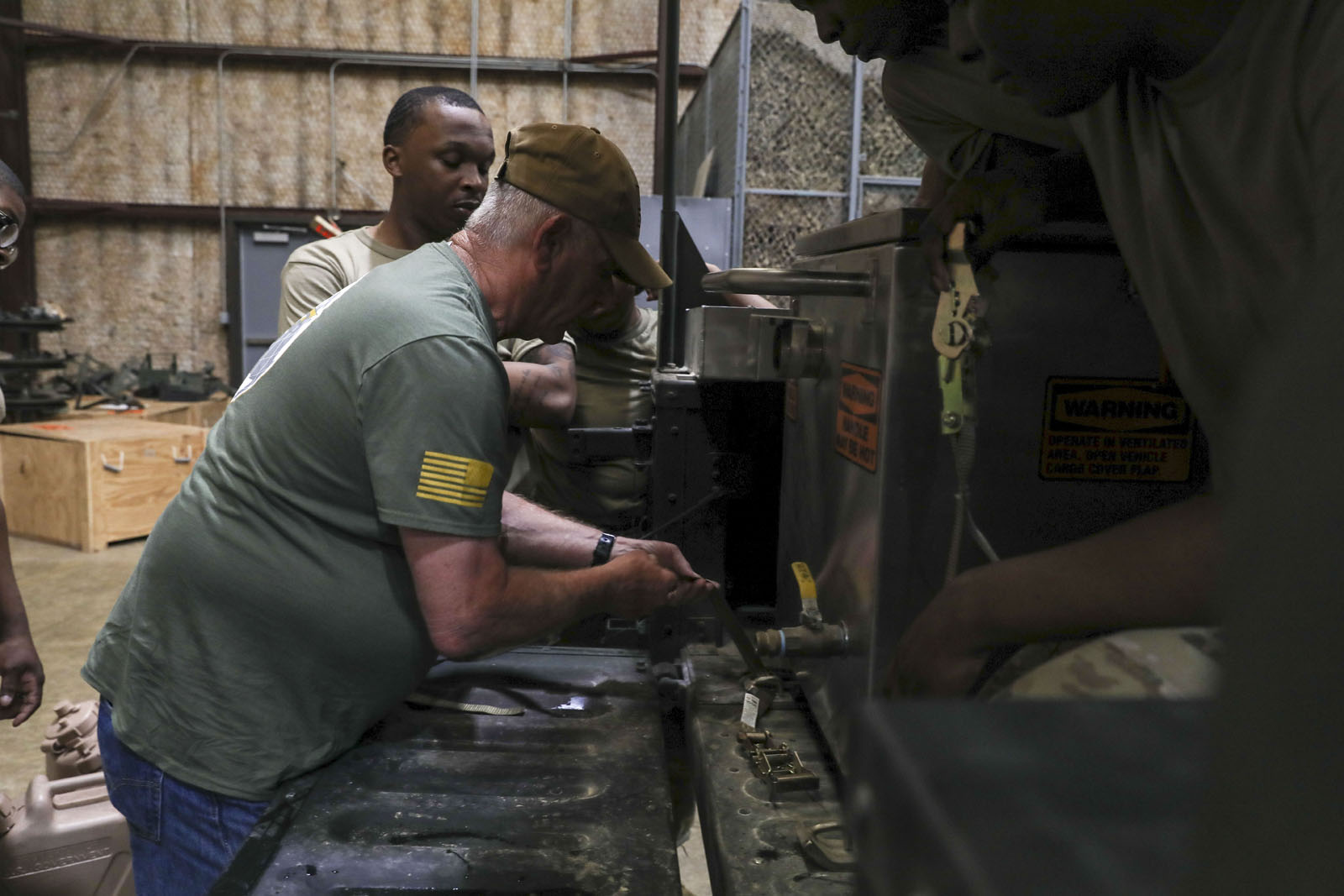 Upon arriving to the course, Soldiers receive a PowerPoint presentation covering the theory of operation, functionality, indicators, controls, as well as the set-up, unpacking and packing up of each piece of equipment.
Upon arriving to the course, Soldiers receive a PowerPoint presentation covering the theory of operation, functionality, indicators, controls, as well as the set-up, unpacking and packing up of each piece of equipment.
“Once they complete the PowerPoint presentation, everything in the class is hands-on, and at the end, they receive a practical application test,” said Council. “We are here to train the Soldiers on all their equipment. The ‘Train the Trainer’ concept means the Soldiers should be returning to their individual units to train their Soldiers on everything they have learned here.”
During the first week of training, Soldiers familiarized themselves with the Containerized Kitchen, Modern Burn Units and the Multi-Temperature Refrigeration Container System. The second week focused primarily on the Assault Kitchen and Field Sanitation Center.
For some Soldiers, this training is the first time they have been able to train on the actual set-up and tear-down procedures.
“We only cooked in the CKs at AIT. We never broke anything down, but here we are breaking everything down and setting it up, and I’m learning a lot as we go through,” said Spc. Ashley Tatum, a culinary specialist with H Company, 3rd Battalion, 156th Infantry Regiment, 256th IBCT. “We are doing everything to include the mechanical room, which I did not realize had all that stuff back there, or the mechanical burners. I did not know they broke down as far as they do.”
Council and his team also walked the Soldiers through troubleshooting measures on each piece of equipment and explained the upgrades that had been made to the CKs. Some of the upgrades to the CK include new heat shields at the front of the serving line, two fans to help pull heat out of the CK, upgraded generators and a CO2 sensor to detect carbon monoxide.
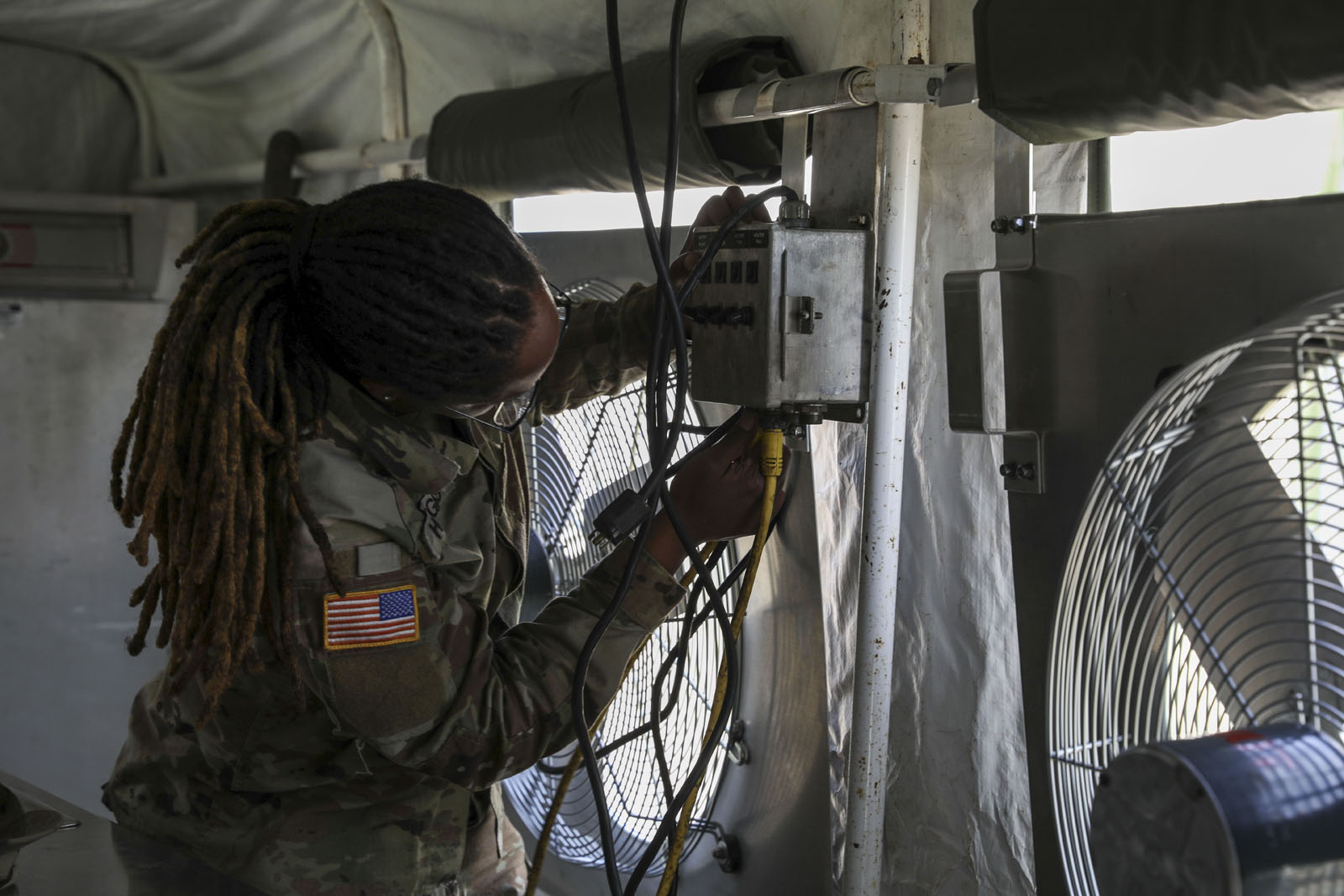 The new safety measures will be a huge benefit for us because it does get really hot when we’re cooking,” said Sgt. Roshon Roberts, D Company, A Troop 2nd Squadron, 108th Cavalry Regiment, 256th IBCT. “The fact that we now have heat shields to try and push some of the heat back, as well as fans to draw the heat out, will make cooking more comfortable, improving the quality of the product and less interruption to the mission.”
The new safety measures will be a huge benefit for us because it does get really hot when we’re cooking,” said Sgt. Roshon Roberts, D Company, A Troop 2nd Squadron, 108th Cavalry Regiment, 256th IBCT. “The fact that we now have heat shields to try and push some of the heat back, as well as fans to draw the heat out, will make cooking more comfortable, improving the quality of the product and less interruption to the mission.”
The course, structured around a ‘Train the Trainer’ concept, equips the Soldiers with the knowledge to disseminate the acquired skills within their units and improve collective readiness. Upon completion of the course, Soldiers will be certified to support up to 3000 personnel during field feeding operations and showcase their pivotal role in large-scale operations.
“I’ve benefitted greatly from this training. This is the first time I’ve worked on an AK, so this training has taught me all the components and how the AK is supposed to be loaded and unloaded,” said Sgt. Daneshia Dumas, a culinary specialist with E Company, 769th Brigade Engineer Battalion, 256th IBCT. “This training helps with teamwork and building a team that trusts one another.”
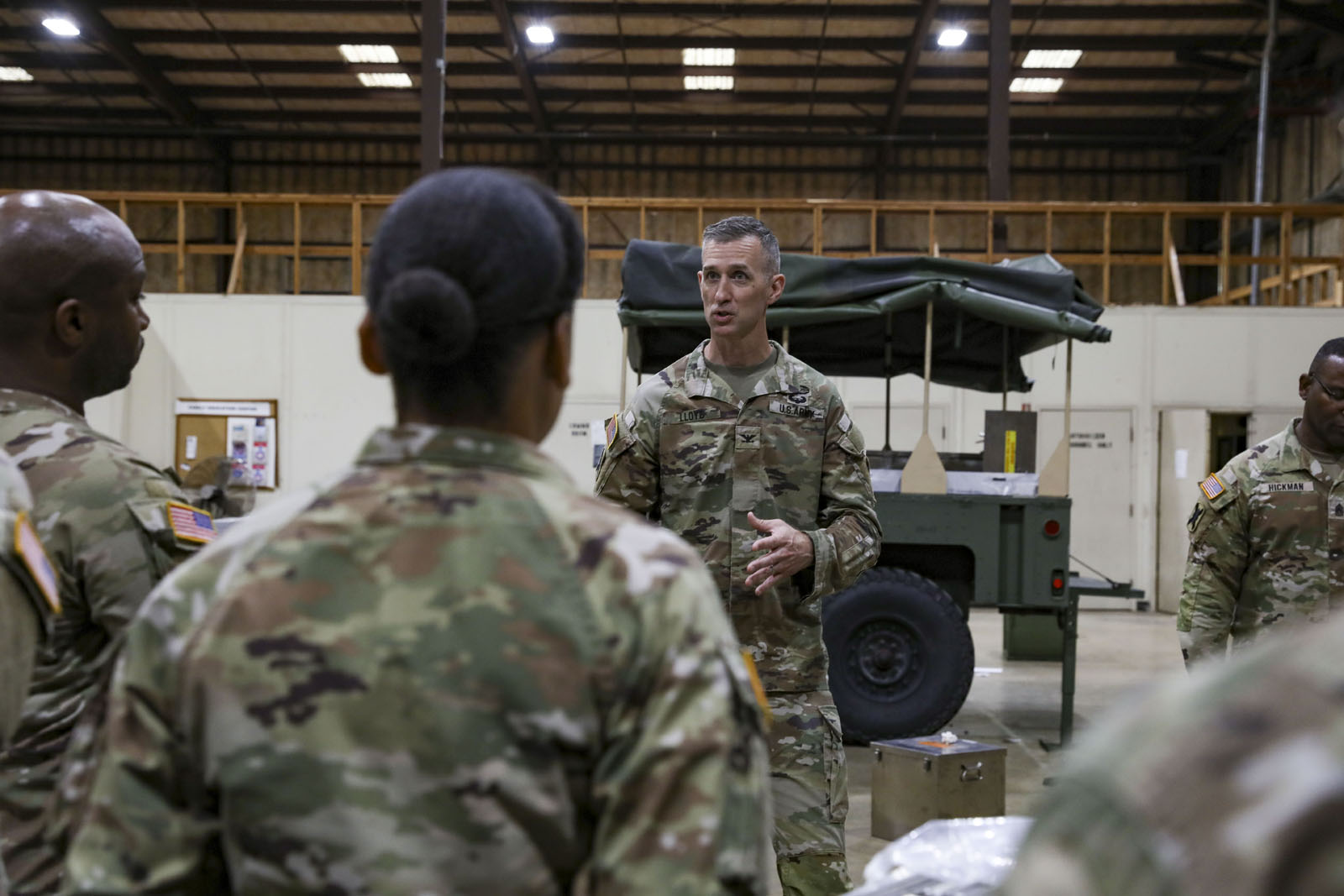 During the second week of training, Col. Jonathan Lloyd, the 256th IBCT brigade commander, and Command Sgt. Maj. Stephen Hickman, the 256th senior enlisted advisor, recognized select Soldiers for their hard work, dedication and leadership throughout the course.
During the second week of training, Col. Jonathan Lloyd, the 256th IBCT brigade commander, and Command Sgt. Maj. Stephen Hickman, the 256th senior enlisted advisor, recognized select Soldiers for their hard work, dedication and leadership throughout the course.
While visiting the Soldiers, Lloyd and Hickman asked them what they thought of the course, identified the brigade’s equipment needs and emphasized the importance of continuous skill development to maintain operational readiness.
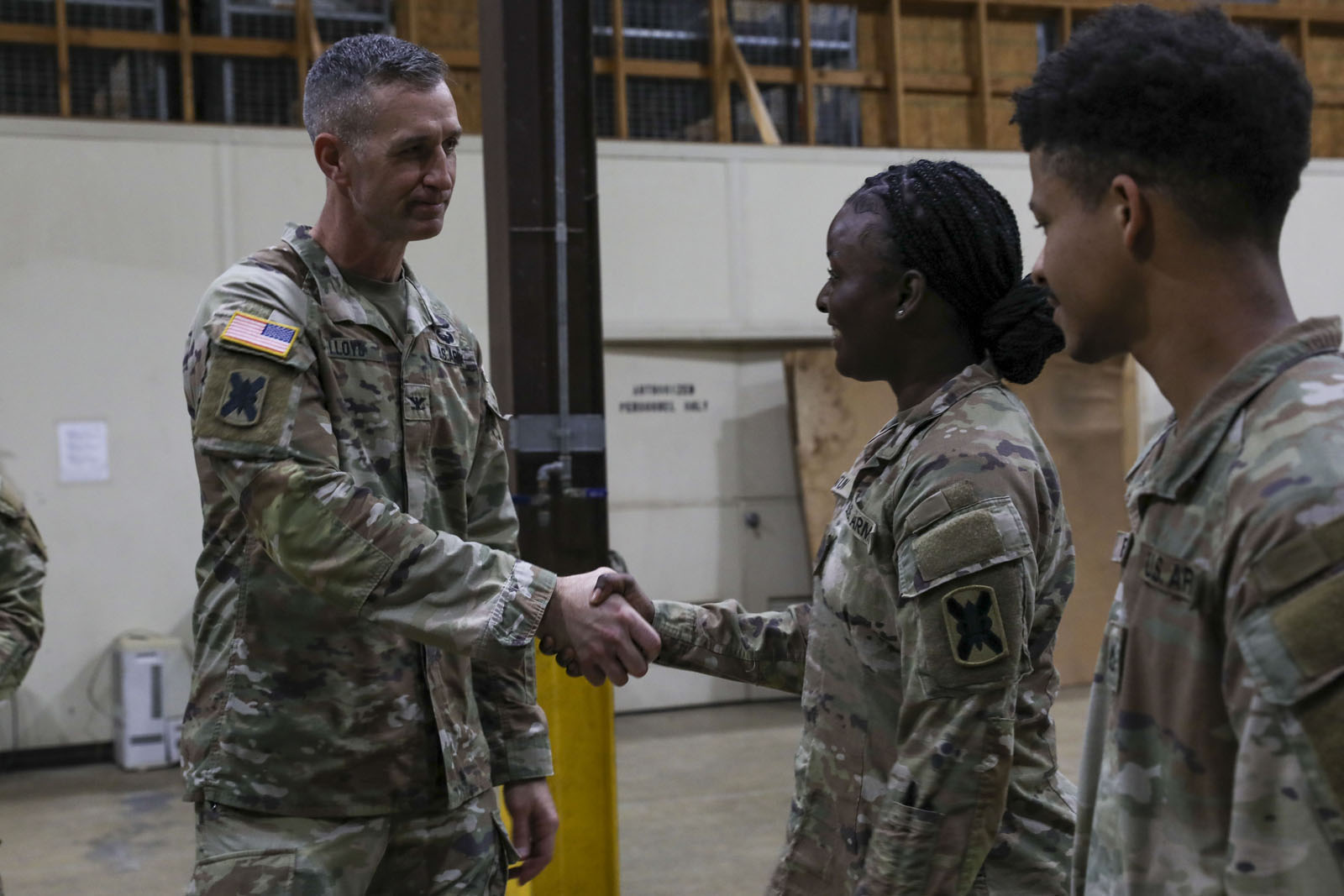 “In my opinion, providing Soldiers the opportunity to learn more about jobs they volunteered to do in an interactive hands-on environment is an invaluable tool in building unit readiness, increasing Soldier morale and retaining the talented Soldiers of the Tiger Brigade,” expressed Lloyd.
“In my opinion, providing Soldiers the opportunity to learn more about jobs they volunteered to do in an interactive hands-on environment is an invaluable tool in building unit readiness, increasing Soldier morale and retaining the talented Soldiers of the Tiger Brigade,” expressed Lloyd.
“This training event served to increase overall readiness and ensure our culinary specialists have the requisite training needed to support operations in both training and deployed operating environments,” said Lloyd.

